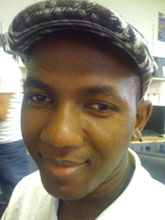 Why Interview? |
 Interview Types |
 Interview Tools |
 Interview Ethics |
 Test Your ‘IQ’ |
 Resources |
Interviewing Ethics
When are you a citizen and when are you a journalist?
We’ve given you a lot of tips for the interviews you plan, whether you need just a quick confirmation or are doing a Q&A. But what about the “interviews” you don’t plan? We’re talking about those tidbits from friends, family and neighbors that you hear (or overhear) at the dinner table, in cafes or at the supermarket.
Or, what if an interview yields information that, if published, would upset someone close to you? What if it could undermine a cause important to you or your readers?
More tips about interviewing ethics
Want more practical advice from fellow citizen journalists?
Situations like these can especially challenge citizen media producers, who have a close relationship with their sources and the issues they cover. Negotiating the blurry line between “citizen” and “journalist” sometimes can create uncertain or even unpleasant situations.
Debbie Galant of Glen Ridge, N.J., knows something about this balancing act. She founded and runs Baristanet, a hyperlocal site that covers three northern New Jersey communities, including her own.
Galant’s son, Noah Levinson, 16, has often been a source for stories about the high school he attends — though not always intentionally. Galant once wrote about how members of Noah’s drama club started a Facebook page making light of their director’s schedule conflicts, the result of his involvement in a Broadway play starring the actor Bob Saget.
Noah’s fellow drama club members thought Baristanet’s story, “Bob Saget Postpones Glen Ridge Play,” took their joke out of context. “They thought it made them sound stupid and spoiled,” Noah said, adding that he was “a little annoyed” at his mother.
Honesty and openness
Sometimes a site’s audience can be a source of conflict.
People’s Production House, based in New York City, trains community members and young people to produce audio programs for radio and the Web. Among its trainees are domestic workers, who have interviewed others in their field about New York state’s proposed Domestic Worker Bill of Rights.

Abdulai Bah, who conducts the trainings, recalls a piece by domestic worker Debra Cole, which aired on local radio.
“Debra was interviewing workers about the bad treatment they get from their employers,” Bah says. “Debra’s employer was listening to the radio, and she asked Debra, ‘Do I treat you that way?’”
Cole avoided an awkward situation by explaining that the interviews reflected only her interviewees’ experiences, not her own, Bah says. Cole’s employer now supports her journalistic endeavors.
Honesty and openness — to interviewees, to your audience and to the other people in your life who might be affected by your stories — are key, Bah says.
He advises trainees to tell their interview subjects upfront: “I’m doing this for radio. If there’s anything you don’t want to say or you don’t want me to use, you have to tell me.”
Access and identification
Sometimes it’s easier to get into places or to talk to people if you’re not wearing your journalist’s hat. But citizen media producers say it’s always best to make it clear that you’re writing or producing a Web site or blog or a radio or TV program.

Elaine Helm Norton of Everett, Wash., is dealing with these issues for her newly launched Northwest Navy News, a participatory site geared toward the 140,000 active-duty Navy and Coast Guard members, reservists, base employees and retirees in the Puget Sound area.
Norton, a professional journalist at The Herald in Everett, is a reporter and Web editor. She hired a retired Navy officer who now works part-time at The Herald, as well as a freelance journalist whose spouse is in the Navy.
A retired officer or a sailor’s spouse could go on base without special credentials and talk to people. But Norton plans to be straightforward with the military’s public affairs officers, so that they know what she and her staff are writing about — and so that they can help line up people for interviews.
Anybody “who is taking information about the world around them into a factually based product is a journalist. … We have to own that.” — Alyssa Katz, The Eminent Domain
Norton’s writers will need press cards and official clearance, just like any member of the press, even though they are creating a new form of outreach that will blend support, news and information.
The best way to handle such a situation, says New York-based Alyssa Katz of The Eminent Domain, is to “always be clear that you’re playing both roles.” Introduce yourself as a community member or activist (or as a military retiree or spouse), and also explain that you produce a Web site, write a blog or are gathering material for a story.
Citizen media producers are often reluctant to call themselves “journalists,” given the widespread negative perception of the mainstream media.
But Katz encourages people to adopt a broader view of the word:
“Anybody writing an article [or] producing a video or a blog who is taking information about the world around them into a factually based product is a journalist,” she says. “We have to own that.”
